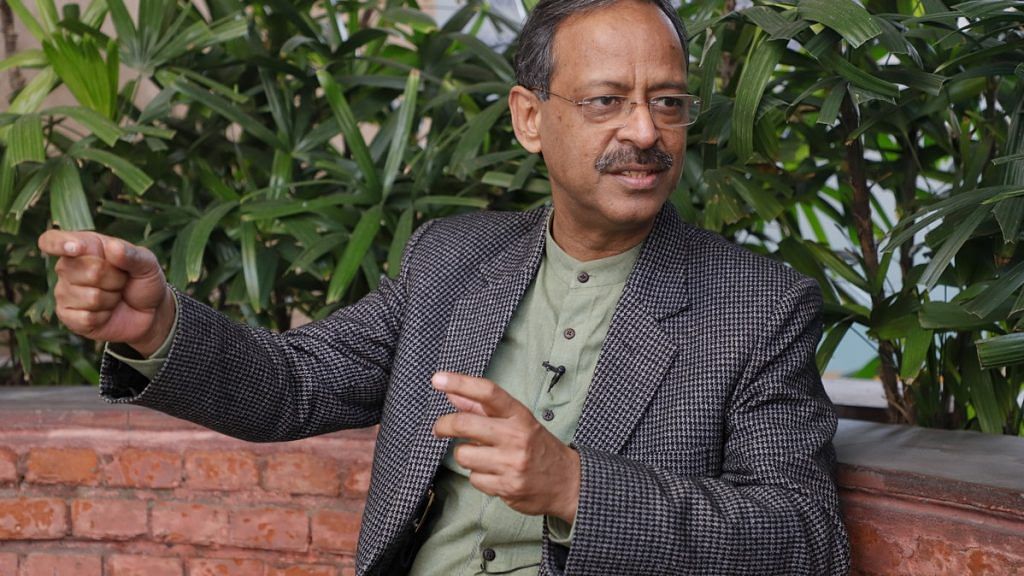Ahead of launch of his book ‘Not just a Civil Servant’, Swarup says Narendra Modi hasn’t experimented much with bureaucracy.
New Delhi: It is below a senior civil servant’s dignity to apply for a post-retirement job in the government after serving in it for decades, former secretary to Government of India, Anil Swarup, has said.
In an interview to ThePrint, Swarup, whose new book Not just a Civil Servant is all set to launch next month, said he had taken a conscious call to not apply for a position post-retirement.
“I was very clear that I will not apply myself…I am not averse to civil servants taking up post-retirement assignments — I would have considered one myself — but it is below the dignity of a senior officer to apply for a post,” he said.
“It sends the message that you are willing to submit, and as a civil servant, the message you send is very important.”
Swarup has served as Human Resource Development and Coal Secretary in Government of India before retiring last year.
The “bottom line” of his book, which captures the 38 years of his career as an Indian Administrative Service (IAS) officer, is that “a civil servant can do a lot of good for the people if he so desires despite all the political problems… The choice is his.”
Also read: An ex-IAS officer on how politicians (mis)use civil servants—and the way out
‘Modi is clear-headed’
Speaking of Prime Minister Narendra Modi’s style of handling bureaucrats, Swarup said, “Mr. Modi is one of the most clear-headed and purposeful politicians…When I was coal secretary, the directions were always very clear, and there wasn’t too much interference.”
Much has been spoken about Modi’s experiments with the bureaucracy in terms of his 360-degree evaluation, his attempt to institutionalise lateral entry, among other things.
However, Swarup said, “I don’t think he experimented much… Some people feel oppressed, and others feel they can do what they want, so it is very subjective.”
“I had the freedom to do what I wanted to do,” he said.
Swarup said this holds true for the fracas in the Central Bureau of Investigation (CBI) as well.
While he was “pained” to see the ongoing mess in the CBI, he felt the officers in question — Alok Verma and Rakesh Asthana — could have handled the crisis better.
“What happened in CBI is indeed very unfortunate…There is indeed something wrong with the selection process,” he said.
“But having said that, what happened in CBI was something that the bureaucrats, and not the politicians, did. The spat between the officers is not the politicians’ doing, it is the two officers’ doing,” he said.
“There are ways of sorting out difference of opinion. You can’t have a public spat over it,” added Swarup.
Also read: Justice Sikri, whose vote decided Alok Verma’s fate, gets Modi govt nod for plum posting
Post-retirement jobs
Weighing in on the ongoing debate about whether bureaucrats and judges should take up post-retirement jobs, Swarup said that while nothing is wrong with bureaucrats manning important commissions and panels, the selection process needs rethinking.
“If the selection process is not doubted, there is no way the people in these positions will be doubted,” he said.
“It is because the government directly appoints these people, and sometimes they do the government’s bidding or don’t, that the entire process is doubted.”
“Why not have the UPSC select these people? If you have an agency which is credible carrying out the selection, it will automatically ensure that people of integrity are appointed,” he added.
Swarup also had a piece of advice for bureaucrats. When there are disagreements with politicians on any issue, a civil servant should always put their views on the file, he said.
“As a civil servant, you have to put your view on the file. If you get overruled then you put your heart and soul in doing what the decision is,” he said.
“But if you don’t put your views on the file, then you are being intellectually dishonest.”
